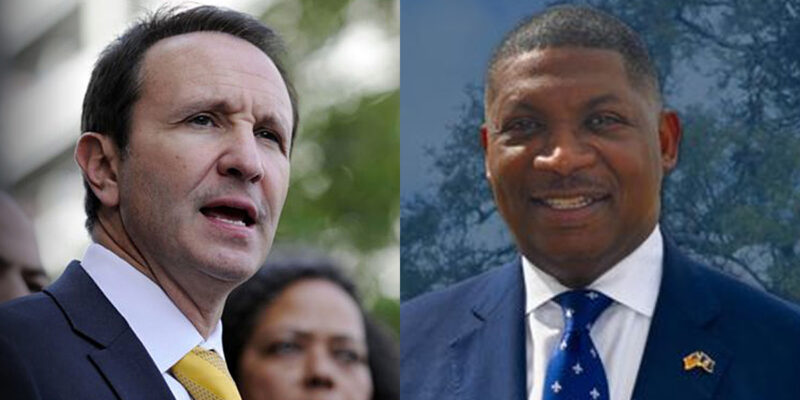(By Victor Skinner/The Center Square) — Every statewide office and every seat in the Louisiana Legislature will be on the ballot Saturday, with runoffs set for Nov. 18.
Louisiana’s majority-vote system includes all candidates for each office, regardless of party, on the ballot for Saturday, when it takes at least 50% plus one vote to win. If that doesn’t happen, the top two with the most votes move to the Nov. 18 runoff.
At the top of the ticket are 16 candidates vying to replace term-limited Gov. John Bel Edwards, including Republican frontrunner Attorney General Jeff Landry, Democratic former Department of Transportation and Development Secretary Shawn Wilson, Republican Treasurer John Schroder, former CEO of Louisiana Association of Business and Industry Stephen Waguespack, Senate Majority Leader Sharon Hewitt, Republican Rep. Richard Nelson, and independent Hunter Lundy, among others.
Nelson withdrew from the race in September to endorse Landry but remains on the ballot.
Landry, backed by former President Donald Trump and the state Republican Party, has led fundraising and polls throughout the race. At the same time, Democratic voters are expected to line up behind Wilson, perhaps leading to a runoff. Every poll since July has shown Landry with a commanding lead.
Early voting results that typically favor Democrats have been lackluster, with nearly 345,000 votes cast in the early voting period that ended on Oct. 7 representing an 8% decline from 2019. The Secretary of State’s office predicts no more than 46% of voters will cast ballots on Saturday, down about 5% from prior years.
Lieutenant Governor Bill Nungesser will be on the ballot for reelection facing two Republicans, a Democrat, an independent, and a candidate with no party affiliation. Nungesser, who has served in the position since 2016, won re-election in 2019 with more than 68% of the vote.
Eight candidates are vying for Secretary of State to replace incumbent Kyle Ardoin, who is not seeing reelection. Republicans seeking to replace him include Speaker of the House Clay Schexnayder, business owner Brandon Trosclair who successfully challenged President Joe Biden’s vaccine mandate at the U.S. Supreme Court, Republican First Assistant Secretary of State Nancy Landry, and Public Service Commissioner Mike Francis.
Democrats in the race include attorney Gwen Collins-Greenup, and former Orleans Parish Criminal Clerk of the Court Arthur Morrell. Five of those candidates participated in a forum in September to outline their priorities for the role, which include the replacement of voting machines that has been a controversial issue.
Only three elections for secretary of state have advanced to a general election since 2003. The last Democrat elected to the office was W. Fox McKeithen in 1987, and he switched parties two years later to serve until 2005.
The race for treasurer will feature two Republicans — former congressman and a deputy chief of staff for Trump, John Fleming and Baton Rouge state Rep. Scott McKnight. They will face Democratic Lake Charles financial advisor Dustin Granger.
Advertisement
McKnight would continue Schroder’s opposition to state investments in institutions that involve environmental, social and governance factors, focusing instead on financial returns. At the same time, Granger has promised to seek out those institutions. Fleming, endorsed by the state Republican Party, has said his priority is maximum returns.
The race for attorney general includes Republican Solicitor General Liz Murrill, Landry’s top deputy, who has dwarfed the competition in fundraising.
Crowley Rep. John Stefanski will also appear on the ballot with former West Baton Rouge prosecutor Marty Maley, both Republicans. Democrats Lindsey Cheek and Perry Walker Terrebonne are also in the race to become the state’s top law enforcement official.
The ballot will also feature four ballot measures, 39 state Senate seats and 105 state House races, in addition to six regional races for the state school board, and local clerk of court, and police juror elections.
Republicans remain heavily favored in a state that voted 58% for Trump in 2016 and 2020. As of Oct. 1, the state’s nearly 3 million registered voters comprised about 39% Democrats, 34% Republicans and the remainder affiliated with other parties. About 45% of the roughly 345,000 early ballots cast came from Republicans, compared to about 40% from Democrats.
Over the last two decades, Republican voter turnout has eclipsed Democrat voter turnout by an average of 3%.
Advertisement
Advertisement

